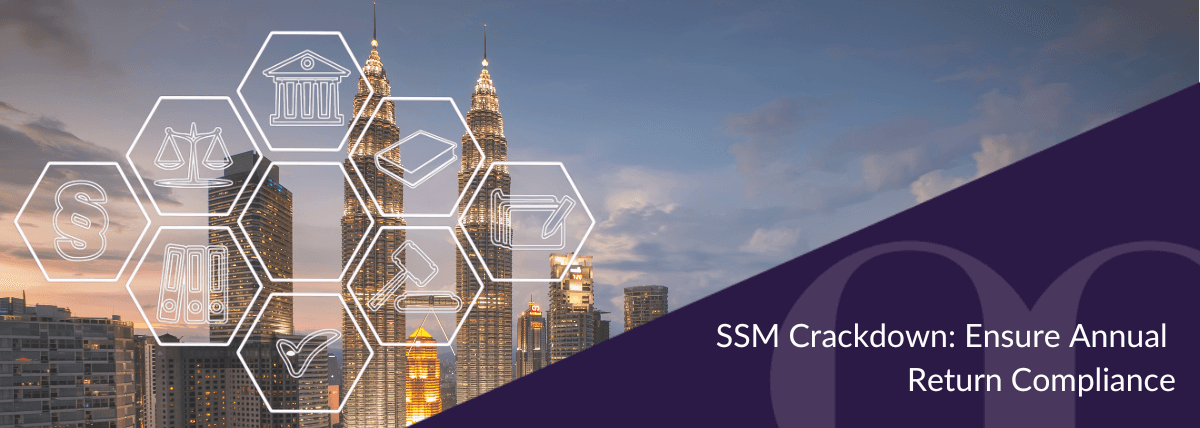Table of Content
As Malaysia moves towards a more digitised, transparent corporate governance model, the AGM shareholder meeting is undergoing a significant transformation. Recent regulatory changes now permit listed companies to follow a hybrid meeting format, combining physical and virtual participation.
This shift aligns with broader trends in shareholder engagement, allowing companies to enhance accessibility while meeting their compliance obligations. From 1 March 2025, all publicly listed companies (PLCs) will be required to conduct their general meetings in either a physical or hybrid format, as mandated by the Securities Commission Malaysia.
As the corporate landscape evolves, company directors are weighing key considerations such as transparency, compliance, shareholder engagement, risk management, and, increasingly, reputation. Hybrid formats offer strategic opportunities to address all of the above while reinforcing best practices in governance.
Understanding Hybrid AGM Shareholder Meetings
The AGM shareholder meeting is a legally mandated annual event where shareholders review financial performance, elect directors, approve dividends and make other major corporate decisions. It plays a central role in upholding corporate accountability.
In Malaysia, there are several types of shareholders’ meetings.
These include:
- Annual General Meeting of Shareholders (AGM) – a statutory annual shareholder meeting for listed companies.
- Extraordinary General Meeting (EGM) – called to address urgent or special matters.
- Class Meetings – held for shareholders of a specific class of shares, typically to vote on issues that affect their rights.
What is changing now is the format in which these meetings can be conducted. The hybrid meeting model allows participants to attend either in person or online. According to Richard Lee, Director of Client Management at BoardRoom Malaysia, hybrid meetings have risen significantly.
Listed companies increasingly favour hybrid meetings, aiming to improve flexibility, reduce venue costs, and expand shareholder access.
Who can attend an AGM meeting in Malaysia?
All registered shareholders of a company are entitled to attend its AGM shareholder meeting. They may participate in person, via proxy, or through virtual platforms for meetings conducted in hybrid formats. This ensures inclusive access, allowing both local and international shareholders to engage in key corporate decisions regardless of location.
Navigating Compliance and Regulatory Expectations
The Malaysian regulatory environment has been quick to adapt. Under the Companies Act 2016, all public companies must hold AGMs within six months of their financial year-end. Bursa Malaysia also imposes listing rules around disclosure, shareholder voting, and proper conduct of meetings.
Hybrid meetings help ensure:
- Transparency: All shareholders can attend, regardless of location.
- Accountability: Online voting and documentation mirror in-person processes.
- Shareholder rights: Electronic registration, e-proxy, and remote voting maintain equal participation.
As Richard notes, while the AGM meeting procedure for hybrid formats largely mirrors that of physical ones, additional team members may be required to manage the online experience, including Q&A handling, live streaming and e-voting logistics.
BoardRoom, as a leading share registrar in Malaysia, handles these processes end-to-end, ensuring companies maintain full compliance and a seamless user experience.
AGM meeting scheduling and documentation validation also require particular attention in hybrid formats, especially to meet submission deadlines and ensure that proxies and remote attendees are properly authenticated.
Strategic Advantages of Hybrid AGMs for Listed Companies
Beyond compliance, hybrid AGMs offer numerous strategic benefits for listed companies:
Greater Shareholder Participation
Hybrid formats allow shareholders, especially international or institutional investors, to join remotely, increasing turnout and inclusivity. As Richard says, companies are responding to shareholder requests for remote options: ‘They asked why not hybrid – it’s easier for them to join anytime, anywhere.’
Strengthened Governance, Decision-making and Trust
Hybrid meetings enhance corporate governance by enabling secure, real-time participation and transparent communication, whether shareholders attend in person or remotely. Features like integrated e-polling ensure every vote counts, while live Q&A and accessible documentation support more informed, inclusive decision-making. Together, these elements build lasting shareholder trust and demonstrate a company’s commitment to modern, accountable governance.
Cost Efficiency, Resource Planning and Sustainability
Many companies overinvest in large venues, expecting high turnout, only to have limited attendance. Hybrid meetings provide more predictable headcounts and reduce venue and travel costs. By offering remote participation, companies can minimise venue and travel expenses while maintaining full shareholder access, helping to improve cost predictability and support sustainability by minimising the environmental footprint of large-scale events.
Reputation Protection
A seamless, well-executed hybrid AGM demonstrates operational professionalism and protects the company’s public image, especially in high-stakes shareholder engagements. BoardRoom builds redundancy into its systems – including dual live-streaming servers and pre-event load testing – to guard against technical failures. Contingency planning is essential to any hybrid AGM strategy. Not only does this guard against the risk of technical failures, but it also protects the company from the reputational damage that may result from a disrupted AGM.

Why Work with BoardRoom for Your Hybrid AGM?
As one of Malaysia’s most experienced share registry and AGM meeting services provider, BoardRoom has facilitated thousands of annual general meetings for listed companies. Boardroom offers end-to-end solutions, personalisation and after event support.
What sets BoardRoom apart?
Integrated platforms like the BoardRoom Smart Investor Portal (BSIP) offer secure registration, e-proxy submission and document publishing, all in one.
With the capacity to manage physical meetings of thousands of participants and concurrent virtual sessions up to 10,000 securely, BoardRoom delivers consistent quality across formats.
BoardRoom supports companies even when it is not the appointed share registrar, offering technology personnel and expertise to help run the meetings.
As Richard says, ‘It’s about trust. The client knows we’ve run every kind of meeting – physical, virtual, and hybrid. Even complex ones across multiple venues.”
BoardRoom is the AGM partner of choice for companies listed on Bursa Malaysia – a testament to our proven track record, depth of experience, and unwavering commitment to precision, compliance, and service excellence.
Preparing for the Future of Shareholder Meetings
The move to hybrid AGM shareholder meetings is more than a regulatory shift. It allows listed companies to elevate governance, engage more shareholders, and future-proof their operations.
By embracing hybrid formats, companies can align with regulatory best practices while unlocking strategic benefits like improved participation, reduced risk, operational efficiency and enhanced corporate reputation. However, doing so requires a partner with the experience, systems and local expertise to execute flawlessly.
To learn more about how BoardRoom can support your next hybrid AGM, visit: BoardRoom Share Registry Services
Related Business Insights
-

07 Oct 2025
Employee Statutory Contributions: EPF, SOCSO, EIS & HRD
Learn how to manage Malaysia's statutory contributions, EPF, SOCSO, EIS & HRD, with clear guidance on compliance, b …
READ MORE -

11 Sep 2025
SSM Crackdown: Ensure Annual Return Compliance
Act now on annual return compliance in Malaysia. Learn what the SSM crackdown means and how BoardRoom Malaysia can …
READ MORE -

10 Sep 2025
Malaysia AGM Report 2025
Discover how you can navigate the busy AGM season effectively while balancing regulatory demands and stakeholder ex …
READ MORE



